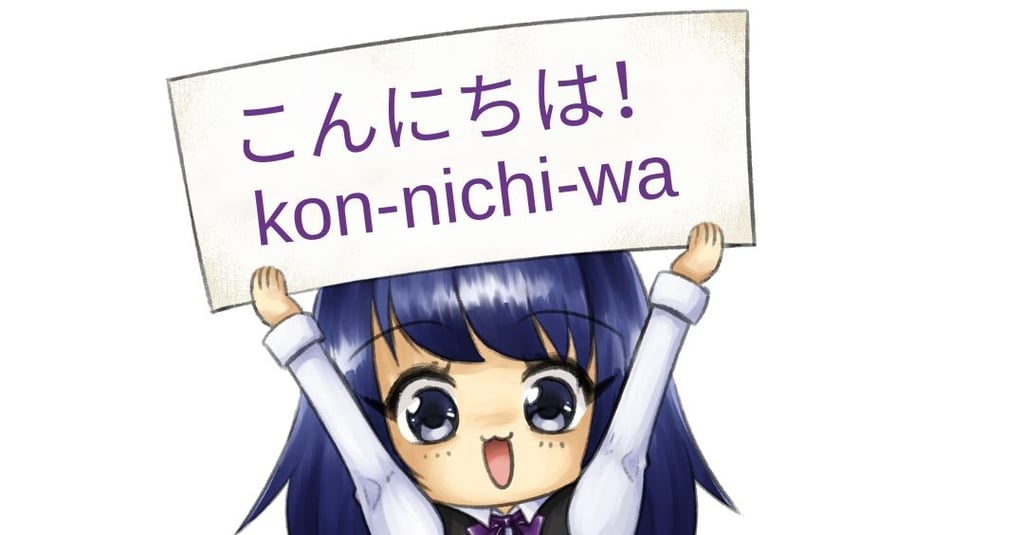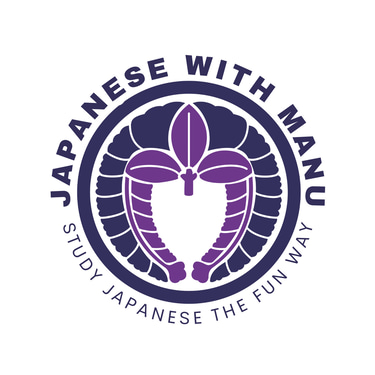The real meaning of konnichiwa
Learn the origin an the word by word translation and the correct usage of this well-known Japanese greeting.
Manu-sensei
7/22/20242 min read


kon-nichi-wa! こんにちは! Did you know that the original meaning of this common Japanese greeting is a little different than what you might think?
Usually, it is translated as 'hello' or 'good afternoon.' To understand what it really means, let's take a look at every part of this greeting:
kon こん this
nichi にち day
wa は about/concerning
= about this day = in regards of today
So, in kon-nichi-wa, there is no 'good' or 'afternoon,' nor anything that resembles a 'hello!'
Actually, it is an abbreviation of a rather old-fashioned and super polite phrase: 'Kon-nichi wa go-kigen ikaga desu ka' - About this day, is it going favorably for you?
People usually don't talk like that anymore, except in anime.
The same origin is true for its evening equivalent, kon-ban-wa, whereas 'ban' means evening.
Also, both kon-nichi-wa こんにちは and kon-ban-wa こんばんは are written in hiragana (syllabic writing system where each character has a certain pronuncation but no inherent meaning) instead of kanji (characters that came from China and have a certain inherent meaning) when used as a greeting - as opposed to 'today' 今日 kyou (kanji for now and day/sun) and 'this evening' 今晩 kon-ban (kanji for now and evening), which are written with kanji.
Let me give you some more information about this topic marker wa は. As part of a word, this syllable is usually pronounced ha, but when used as a topic marker, the pronunciation changes to wa. This is a remnant of a time long ago, when all syllables that are now pronounced with an 'h' where actually all pronounced as 'w.' Yes, Japanese pronuncation has changed quite a bit.
Now you might ask about the meaning of 'topic marker.' Basically, は wa is used when giving additional information about something. For example, when you want to say that something is delicious. The something might be a piece of strawberry shortcake (one of my favorites). So you are eating this delicious morsel of Japanese Western style cake and want to let your friend know what you think about this cake.
In Japanese, you would say: about this cake, (it) is delicious.
kono keeki wa oishii desu. このケーキは美味しいです。
kono keeki = this cake
wa = topic marker -> about this cake
oishii desu. delicious (to be).
Next, I could tell you about 'kono' as well as 'oishii' and 'desu.' But this is already way more text than I intended to write for this ad.
So the only thing left to say for me is: Come and follow me for more fun and interesting bite sized lessons about the Japanese language. I have prepared a three hour crash course to make your start into the Japanese language as fun and easy as possible. There, you'll learn your first Japanese characters, words and sentences!
Oh right: 'me' is Manu, teaching Japanese since 2010. And when I was a kid, I wanted to marry Shigeru Miyamoto, the guy who created Super Mario. That was the start of my interest in Japan, its people, and its culture!
PS: I did end up marrying a Japanese guy, but that's a story for another day 😁
Also: if you can already read hiragana and katakana, try my book 'Reading Japanese for Beginners'
US: https://www.amazon.com/dp/B0DV4NQ3YF
CAN: https://www.amazon.ca/dp/B0DV4NQ3YF
UK: https://www.amazon.co.uk/dp/B0DV4NQ3YF
AUS: https://www.amazon.com.au/dp/B0DV4NQ3YF
It's available in every amazon marketplace!
Explore
Discover Japanese language and culture through our online resources and courses.
Connect
youtube and podcast
© 2025 Manuela Ito-Loidl GmbH, Pfaffingstraße 78, 4802 Ebensee, Austria. All rights reserved.
manu (at) japanesewithmanu.com; FN 574287 s; UID ATU77802558
Privacy Policy/LEGAL NOTICE
